Technology
Internet Safety
Internet safety is incorporated into the curriculum of Chesterfield County Public Schools. As students learn to use the internet, they also learn about online safety, digital citizenship and manners, cyberbullying and other topics. The school division has a moral, ethical and legal imperative to involve parents as soon as any concerning information is found on our network. (Parents have access to these files through their children’s Chromebook and are encouraged to monitor their children’s online behavior.)
The acceptable use policy of Chesterfield County Public Schools outlines expectations for appropriate behavior while students access the school division’s technology network and/or provided device. All school rules apply to the content on a student’s Google Drive. Students are encouraged to review what pictures and movies are stored. If a student connects a cellphone to the Chromebook and allows the phone to upload pictures and movies, they can be held accountable for any inappropriate material.
As part of the effort to maintain a safe, secure online experience for students, Chesterfield County Public Schools uses Gaggle at the middle and high school level.
Guidelines for Email Communications
The use of e-mail as a medium for communication between CCPS employees and students, parents, and the general public has become commonplace. Therefore, proper consideration must be taken regarding all electronic communications. While the substance of any single e-mail message may be emotional or may convey strongly held beliefs and positions, everyone who engages in electronic communications is expected to present themselves professionally. The following are CCPS guidelines developing and sending electronic communications.
As with any written communication, the primary goal of an e-mail message is to send a clear and concise message that the recipient will understand.
Treat e-mail messages as any professional communication. • Keep messages concise. • Try to write in complete sentences using proper punctuation, spelling, and grammar • Do not write in all CAPS – it appears that you are screaming and it is also considered rude and bullying.
Use your name in your e-mail message, particularly if the recipient does not know who you are and your e-mail address does not reflect your identity.
Include a subject in the subject line of the e-mail message. Due to the threat of viruses, etc.; e-mail messages without a subject line may be deleted without being read. Include your name and contact information at the end of the e-mail message.
E-mail messages should be courteous and civil. • E-mail messages must not be used for harassment or discriminatory purposes. • E-mail messages should not contain curse words or use obscenities. • E-mail messages must not threaten injury or bodily harm.
CCPS teachers and administrators will generally respond to or acknowledge all e-mail messages regarding student or school issues. However, e-mail messages that are threatening, harassing, or requesting a response to a student or school issue which has already been responded to may not receive a response.
Any citizen that sends e-mail messages that are determined to be harassing, threatening, bullying, discriminatory, or otherwise inconsistent with these guidelines, may have their access to the CCPS e-mail system restricted. • CCPS employees are at all times subject to the provisions of CCPS Policy 7230, and 7230-R (“Acceptable Use of CCPS-NET”) in their e-mail communications.
Any citizen whose sends e-mail messages inconsistent with these guidelines may have their access to the CCPS email system restricted for up to one calendar year.
Notice of any restriction under this guidelines will be provided to the person whose email access has been restricted will be in writing and shall include (i) the scope and length of the restriction; and (ii) a description of the communication that led to the restriction; and (iii) notice that the restricted person may request that full email access be restored six months after the date the restriction was imposed

